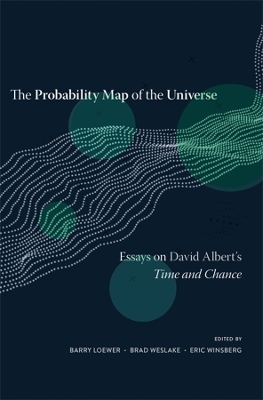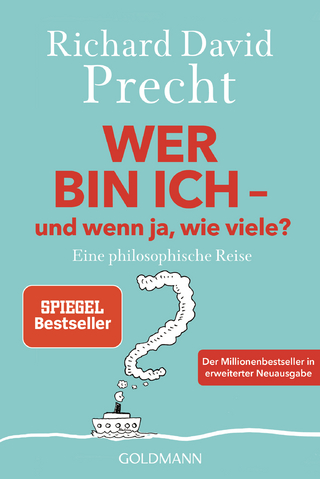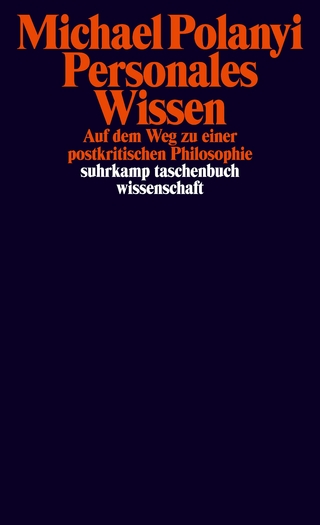
The Probability Map of the Universe
Essays on David Albert’s Time and Chance
Seiten
2023
Harvard University Press (Verlag)
978-0-674-96787-8 (ISBN)
Harvard University Press (Verlag)
978-0-674-96787-8 (ISBN)
David Albert’s 2000 book Time and Chance attempts to account for some of the most intractable problems in theoretical physics, in particular those arising from the direction of time. This collection assembles essays exploring and debating Albert’s ideas, now recognized as among the most important recent contributions to the philosophy of science.
Philosophers debate the ideas and implications of one of the most important contemporary works in the philosophy of science, David Albert’s Time and Chance.
In the twenty-odd years since its publication, David Albert’s Time and Chance has been recognized as one of the most significant contemporary contributions to the philosophy of science. Here, philosophers and physicists explore the implications of Albert’s arguments and debate his solutions to some of the most intractable problems in theoretical physics.
Albert has attempted to make sense of the tension between our best scientific pictures of the fundamental physical structure of the world and our everyday empirical experience of that world. In particular, he is concerned with problems arising from causality and the direction of time: defying common sense, almost all our basic scientific ideas suggest that whatever can happen can just as naturally happen in reverse. Focusing on Newtonian mechanics, Albert provides a systematic account of the temporal irreversibility of the Second Law of Thermodynamics, of the asymmetries in our epistemic access to the past and the future, and of our conviction that by acting now we can affect the future but not the past. He also generalizes the Newtonian picture to the quantum-mechanical case and suggests a deep potential connection between the problem of the direction of time and the quantum-mechanical measurement problem.
The essays included in The Probability Map of the Universe develop, explore, and critique this account, while Albert himself replies. The result is an insightful discussion of the foundations of statistical mechanics and its relation to cosmology, the direction of time, and the metaphysical nature of laws and objective probability.
Philosophers debate the ideas and implications of one of the most important contemporary works in the philosophy of science, David Albert’s Time and Chance.
In the twenty-odd years since its publication, David Albert’s Time and Chance has been recognized as one of the most significant contemporary contributions to the philosophy of science. Here, philosophers and physicists explore the implications of Albert’s arguments and debate his solutions to some of the most intractable problems in theoretical physics.
Albert has attempted to make sense of the tension between our best scientific pictures of the fundamental physical structure of the world and our everyday empirical experience of that world. In particular, he is concerned with problems arising from causality and the direction of time: defying common sense, almost all our basic scientific ideas suggest that whatever can happen can just as naturally happen in reverse. Focusing on Newtonian mechanics, Albert provides a systematic account of the temporal irreversibility of the Second Law of Thermodynamics, of the asymmetries in our epistemic access to the past and the future, and of our conviction that by acting now we can affect the future but not the past. He also generalizes the Newtonian picture to the quantum-mechanical case and suggests a deep potential connection between the problem of the direction of time and the quantum-mechanical measurement problem.
The essays included in The Probability Map of the Universe develop, explore, and critique this account, while Albert himself replies. The result is an insightful discussion of the foundations of statistical mechanics and its relation to cosmology, the direction of time, and the metaphysical nature of laws and objective probability.
Barry Loewer is Professor of Philosophy at Rutgers University and Director of the Rutgers Center for Philosophy and the Sciences. Brad Weslake is Associate Professor of Philosophy at New York University Shanghai, Global Network Professor of Philosophy at New York University, and Guest Professor of Philosophy at East China Normal University. Eric Winsberg is Professor of Philosophy at the University of South Florida.
| Erscheinungsdatum | 03.01.2023 |
|---|---|
| Zusatzinfo | 7 illus., 1 table |
| Verlagsort | Cambridge, Mass |
| Sprache | englisch |
| Maße | 156 x 235 mm |
| Gewicht | 726 g |
| Themenwelt | Geisteswissenschaften ► Philosophie ► Metaphysik / Ontologie |
| Mathematik / Informatik ► Mathematik ► Wahrscheinlichkeit / Kombinatorik | |
| Naturwissenschaften ► Physik / Astronomie ► Quantenphysik | |
| ISBN-10 | 0-674-96787-9 / 0674967879 |
| ISBN-13 | 978-0-674-96787-8 / 9780674967878 |
| Zustand | Neuware |
| Informationen gemäß Produktsicherheitsverordnung (GPSR) | |
| Haben Sie eine Frage zum Produkt? |
Mehr entdecken
aus dem Bereich
aus dem Bereich
eine philosophische Reise
Buch | Softcover (2024)
Goldmann (Verlag)
CHF 19,55
Auf dem Weg zu einer postkritischen Philosophie
Buch | Softcover (2023)
Suhrkamp (Verlag)
CHF 53,20


